april, 2021

Event Details
Tang Center for Early China On Altars of Soil Lecture Series “From guguo to gucheng: Revising the role of Neolithic walled towns in the story of Chinese
more
Event Details
Tang Center for Early China On Altars of Soil Lecture Series
“From guguo to gucheng: Revising the role of Neolithic walled towns in the story of Chinese ‘civilization’”
Camilla Sturm, Barnard College
April 30, 2021 (12:00-1:15 PM EST)
| Register here! |
Models of sociopolitical change in early China envision the rise of states and the development of civilization as following a neat evolutionary trajectory. One popular such model describes this trajectory as having three stages – guguo, fangguo, diguo (archaic state, regional state, empire) – with each stage characterized archaeologically by larger and more stratified walled sites. Viewed through this lens, the emergence of walled towns across China during the late Neolithic ushered in the subsequent rise of Bronze Age states. Despite the strong progressivist quality of such narratives, these models are often conceived of in reverse. In practice, archaeologists and historians work their way backwards through the material and archival records, tacking not from Neolithic walled towns to Bronze Age states but from states to walled towns, from guguo to gucheng. This approach risks a teleological rendering of the past, where more recent histories shape the deeper past and obscure its wide-ranging diversity.
This presentation focuses on a very different (pre)history of walled towns in early China. I draw on multiple lines of archaeological data to chart the specific, local histories of two Neolithic walled towns in middle Yangzi River valley. With this data, I argue that these communities were structured around collective action and not the hegemonic rule that has long been assumed. These findings break with conventional understandings of sociopolitical life in early China and challenges us to rethink broad narratives of the rise of Chinese ‘civilization’.
Camilla Sturm is an anthropological archaeologist with interests in craft production, political economies, social learning, and identity. Her research combines traditional archaeological field practices with geochemical and experimental analyses and is primarily focused on the production, exchange, and use of pottery in China and Mongolia. Her work focuses on three interconnected aspects of craft economies: how people learn and share the specialized knowledge of their crafts, how decisions at grassroots and at institutional levels shape economic networks, and how resilient these networks are to social, political, and environmental changes. Dr. Sturm is currently a Term Assistant Professor at Barnard College. Her work has appeared in such journals as the Journal of Archaeological Science, American Antiquity, the Journal of Archaeological Research, and 中央民族大学学报, or the Journal of the Central University of Nationalities in China.
The On Altars of Soil series is sponsored by the East Asian Studies Center at Indiana University; the College Arts and Humanities Center, Indiana University; and the Tang Center for Early China, Columbia University.
With any further inquiries, please contact the organizers, Glenda Chao (Ursinus College) and Nick Vogt (Indiana University), at: onaltarsofsoil@gmail.com.
Time
(Friday) 12:00 pm - 1:15 pm
Location
Zoom meeting


